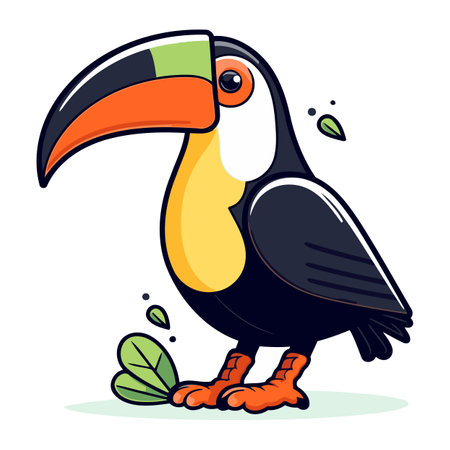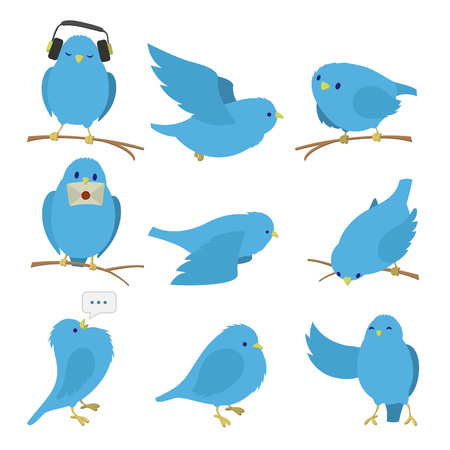Introduction to Natural Behaviours in British Pet Birds
Understanding natural behaviours is essential for anyone caring for pet birds in the UK. Natural behaviours refer to actions and activities that birds would typically display in the wild, such as foraging, social interaction, flying, preening, and vocalising. These instinctive behaviours are crucial not only for their physical health but also for their psychological wellbeing. Encouraging your pet bird to engage in these activities helps to reduce stress, prevent boredom, and minimise the risk of behavioural problems like feather plucking or aggression. Supporting natural behaviours can also strengthen your bond with your bird, allowing them to express themselves fully and thrive in a domestic environment. By recognising the importance of these behaviours, British bird owners can create a more enriching and healthy life for their feathered companions.
Understanding Your Pet Bird’s Species-Specific Needs
When it comes to encouraging natural behaviours in British pet birds, understanding the unique needs of each species is essential. Popular choices such as budgerigars (budgies), canaries, and cockatiels each have distinct traits and natural instincts that should be supported within a home environment. Recognising these differences is the first step towards promoting their health, wellbeing, and happiness.
Natural Behaviours of Common British Pet Birds
Each bird species has evolved specific behaviours in the wild, which remain important even when living as pets. For example, budgerigars are highly social and thrive on interaction with both humans and other birds. Canaries are renowned for their singing ability and require a calm space to express this behaviour. Cockatiels are inquisitive and playful, often seeking opportunities to explore and forage.
Species-Specific Behavioural Needs
| Bird Species | Key Natural Behaviours | Environmental & Social Requirements |
|---|---|---|
| Budgerigar | Social interaction, climbing, chewing, vocalising | Companionship (other budgies or human attention), toys for chewing, perches of varying textures |
| Canary | Singing, flying short distances, solitary exploration | Quiet environment, ample cage space for flight, minimal handling |
| Cockatiel | Foraging, preening, whistling, mimicking sounds | Toys for foraging, time outside the cage for exercise, regular gentle interaction |
Practical Tips for Meeting Species Needs in the UK Home
It is important to replicate these natural behaviours by providing suitable enrichment: offer plenty of safe chewable items for budgies; allow canaries space to fly within their cages; and give cockatiels opportunities to forage and interact. Always consider your pet bird’s individual personality as well as its species-specific needs when setting up their living environment. By doing so, you’ll foster not just good physical health but also emotional wellbeing—key aspects of responsible pet ownership in the UK.

3. Providing The Right Environment
Creating a suitable environment is essential for encouraging natural behaviours in British pet birds. The first step is selecting an appropriately sized cage; birds such as budgies, cockatiels, and canaries need ample space to stretch their wings and fly short distances. As a general rule, always opt for the largest cage your living space and budget allow, ensuring it is wider than it is tall to facilitate horizontal flight.
Layout matters just as much as size. Equip the cage with perches of varying thickness and materials—natural wood branches are ideal—to promote healthy feet and mimic their wild habitat. Place these perches at different heights but ensure they do not obstruct the birds ability to fly from one side of the cage to the other.
Enrichment is crucial for stimulating your bird’s mind and encouraging instinctive activities like foraging, climbing, and problem-solving. Rotate toys regularly, introducing items such as shreddable paper, safe bells, swings, and ladders. Foraging toys or hiding treats within bird-safe foliage can engage your pet’s natural search behaviours, helping to prevent boredom and associated stress-related conditions.
Finally, consider the overall safety and stimulation of the environment. Position cages away from draughts and direct sunlight while allowing your bird a clear view of household activity. Providing supervised out-of-cage time in a bird-proofed room lets your pet exercise its wings properly and explore safely. By thoughtfully designing their surroundings, you nurture both the physical health and mental wellbeing of your feathered companion.
4. Enrichment and Foraging Activities
Enriching your pet bird’s environment is essential to promoting their natural behaviours and preventing boredom or stress. British pet bird owners have a wide variety of options for toys and activities that stimulate foraging, problem-solving, and exploration—key elements in supporting healthy, happy birds. Below are some practical suggestions, many of which can be easily sourced or crafted at home using everyday items or materials found in UK gardens and parks.
UK-Available Toys and Foraging Opportunities
Many reputable UK pet shops and online retailers offer enrichment toys designed specifically for birds. These include puzzle feeders, shreddable toys made from bird-safe paper or willow, swings, ladders, and bells. Providing a rotation of these toys ensures ongoing interest and engagement.
| Toy Type | Purpose | Where to Find |
|---|---|---|
| Puzzle Feeders | Encourages problem-solving and natural foraging behaviour | Pets at Home, Northern Parrots, local pet shops |
| Willow Balls & Perches | Promotes chewing and climbing; mimics wild branches | Local garden centres, Amazon UK |
| Shreddable Paper Toys | Satisfies shredding instincts; reduces stress | Etsy UK, DIY at home |
| Bells & Swings | Stimulates movement and playfulness | Wilko, Pets Corner |
DIY Enrichment Ideas Using Household Items
You don’t always need to purchase toys; many enriching activities can be created with safe household items:
- Cereal Boxes: Cut into strips or fill with treats to encourage foraging.
- Loo Roll Tubes: Stuff with shredded paper and seeds for a fun puzzle.
- Cotton Rope: Tie knots or weave through cage bars as an alternative perch.
- Baking Paper: Crumple around treats for a rustling surprise.
- Egg Cartons: Hide seeds inside compartments for birds to discover.
Locally-Sourced Natural Materials
The British outdoors offers plenty of natural enrichment materials. Always ensure anything you collect is free from pesticides and washed thoroughly before use.
- Apple or Willow Branches: Safe for perching and chewing—avoid toxic woods like yew or oak.
- Pine Cones: Bake at a low temperature to remove pests before hanging in the cage as a treat dispenser.
- Dried Grass or Herb Bundles: Hang small bundles of safe herbs such as rosemary or basil for exploration and mild nibbling.
- Bramble Twigs (thorn-free): Provide a natural climbing structure.
Safety Considerations When Introducing New Items
No matter the enrichment activity or material chosen, always supervise your bird initially to ensure safety. Remove any item that shows signs of excessive wear or could pose a choking hazard. Regularly rotating toys and enrichment helps maintain your bird’s curiosity while supporting both physical and mental wellbeing.
5. Diet and Feeding Practices
Encouraging natural behaviours in British pet birds is closely linked to providing a diet that reflects their wild counterparts’ feeding habits. A varied diet not only supports optimal health but also stimulates foraging, exploration, and problem-solving instincts—crucial for both physical and mental wellbeing. In the UK, owners have access to a range of foods that can be used to create enriching, naturalistic feeding routines.
Foraging for a Healthy Mind and Body
Wild birds spend a significant portion of their day searching for food, an activity that keeps them engaged and fit. To mimic this, scatter seeds, grains, and chopped vegetables across different parts of your bird’s enclosure rather than simply placing food in a bowl. Hide treats inside safe chewable toys or amongst clean branches so your pet must seek them out, encouraging natural foraging behaviour.
Variety is Key
A healthy British pet bird’s diet should include high-quality seed mixes (suitable for the species), fresh leafy greens like kale, dandelion leaves (which are commonly found in UK gardens), and chopped root vegetables such as carrots and parsnips. Fruits like apple (cored), pear, and berries can be offered in moderation as treats. For protein and enrichment, consider offering small amounts of cooked egg or mealworms—especially for insectivorous species.
Utilising Local Produce
Take advantage of locally grown produce such as peas, sweetcorn, spinach, or even edible wild plants like chickweed (ensure it is free from pesticides). These foods not only provide essential nutrients but also introduce new tastes and textures to keep your bird interested and mentally stimulated.
Safe Food Preparation and Rotation
Always wash fresh foods thoroughly to remove any chemicals or contaminants. Rotate the types of food offered weekly to prevent boredom and ensure a balance of vitamins and minerals. Avoid feeding avocado, chocolate, caffeine, onion, garlic, or any processed human foods as these are toxic to birds.
Promoting Natural Feeding Patterns
Try offering meals at varying times throughout the day to replicate the unpredictability of wild feeding patterns. Using puzzle feeders or skewers with fresh fruit and veg will further encourage birds to interact with their environment while they eat. This approach fosters resilience, curiosity, and natural problem-solving skills—helping your British pet bird thrive both physically and emotionally.
6. Social Interaction and Mental Stimulation
Social interaction plays a vital role in the wellbeing of British pet birds, helping to encourage natural behaviours and prevent boredom-related issues. Pet birds, especially parrots and budgies commonly kept in UK homes, thrive on companionship and regular engagement. In British households, where routines often include work commitments and busy lifestyles, it’s essential to integrate bonding time with your feathered companion into your daily schedule. Make use of tea breaks or evenings to sit near your bird’s cage, talk gently, or offer treats by hand—this fosters trust and strengthens your bond. Training sessions using positive reinforcement not only stimulate your bird’s mind but also provide opportunities for meaningful interaction; teaching simple commands or tricks can be both rewarding for you and beneficial for your bird’s mental health.
For those with more than one bird, supervised group play and shared activities encourage social learning and mimic the flock dynamics found in the wild. Provide safe out-of-cage time in a bird-proofed room where birds can interact under your watchful eye. If you only have one bird, consider offering mirrors, recorded birdsong, or interactive toys that respond to touch or sound to mimic social stimuli when you’re away during the day. Remember, loneliness can lead to stress-related behaviours such as feather plucking or excessive vocalisation—common concerns among British pet owners who are out at work for extended hours.
Ultimately, weaving social interaction and mental stimulation into your daily routine not only enhances your pet bird’s happiness but also brings joy to your home life. By understanding the importance of companionship and enrichment tailored to British living patterns, you’ll help your bird flourish both mentally and emotionally.
7. Health Monitoring and Professional Advice
Ensuring the wellbeing of your pet bird involves more than just providing environmental enrichment and encouraging natural behaviours. Regular health monitoring is crucial for early detection of both behavioural and medical issues. In the UK, it is highly recommended to schedule routine check-ups with an avian vet, who specialises in bird health. These professionals can identify subtle signs of illness or stress that may be overlooked at home, helping to prevent minor concerns from developing into serious problems.
The Importance of Regular Check-Ups
Just as with other pets, regular veterinary visits play a pivotal role in maintaining your bird’s health. Birds are adept at hiding symptoms of illness, so annual or biannual health checks are essential. These appointments allow your avian vet to assess your bird’s weight, feather condition, beak and claw health, and overall physical wellbeing. Early intervention is key to managing any emerging issues and ensuring your bird continues to display natural, healthy behaviours.
Consulting Avian Vets in the UK
When seeking professional advice, it’s best to find a vet with specific experience in avian care. Many British communities have local practices with avian-certified professionals. The Royal College of Veterinary Surgeons (RCVS) website offers a helpful directory for locating avian vets throughout the UK. Establishing a relationship with a trusted local specialist ensures you have expert support tailored to the unique needs of your pet bird.
Utilising Local Resources
In addition to veterinary services, British bird owners can benefit from support provided by organisations such as the Parrot Society UK and various wildlife rehabilitation centres. These resources offer guidance on best practices for nutrition, environment, and behaviour management specific to the UK climate and conditions. Engaging with these networks not only helps you stay informed but also fosters a sense of community among responsible bird keepers.
By prioritising regular health checks and consulting local avian experts, British pet bird owners can proactively address potential issues, ensuring their birds enjoy enriched lives filled with natural behaviours in a safe and nurturing environment.


